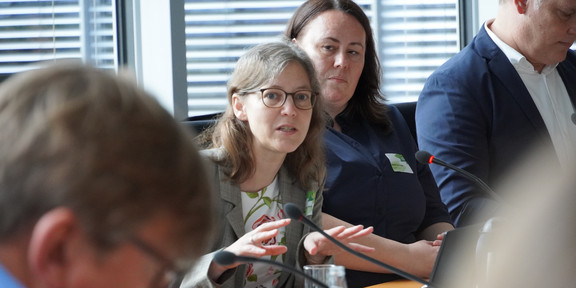McElvany talks about reading promotion at Bündnis 90/Die Grünen
- News

The Bündnis 90/Die Grünen parliamentary group organized a public expert discussion on the topic of reading promotion on 28 June. The experts from the education sector discussed how good reading promotion can succeed and where (federal) policy must start in order to enable educational participation for all.
After the welcome address by Maria Klein-Schmeink MdB (Deputy Chairwoman of the parliamentary group Bündnis 90/Die Grünen), Professor McElvany contributed her expertise on the subject of reading and the reading skills of primary school children. In particular, she drew on findings from the Progress in International Reading Literacy Study (PIRLS), which she led for Germany and which found, among other things, that 25% of primary school children lacked reading skills in 2023. For these primary school children, there is a high risk of falling behind in secondary school and therefore also lower chances of being successful on the job market later on. In her presentation, Professor McElvany addressed the influence of socio-economic differences and gave an overview of measures that help to promote reading and made recommendations for action to politicians.
The subsequent panel discussion was moderated by Dr. Franziska Krumwiede-Steiner MdB (rapporteur for school education for the Bündnis90/Die Grünen parliamentary group in the Bundestag). The participating experts Mandy Jura-Lühr (Head of Editorial Department Primary School, German & Social Sciences at Cornelsen Verlag), Dr. Jörg F. Maas (Managing Director of Stiftung Lesen), Michael Sacher MdB (Rapporteur for Libraries and Publishing / Bündnis 90/Die Grünen parliamentary group), Professor Michael Kralle and Professor Nele McElvany discussed which measures in early childhood, school and extracurricular areas contribute to increasing reading skills. They discussed which innovative concepts already exist, which successful programs should be further expanded and how the federal government can provide additional targeted support.

